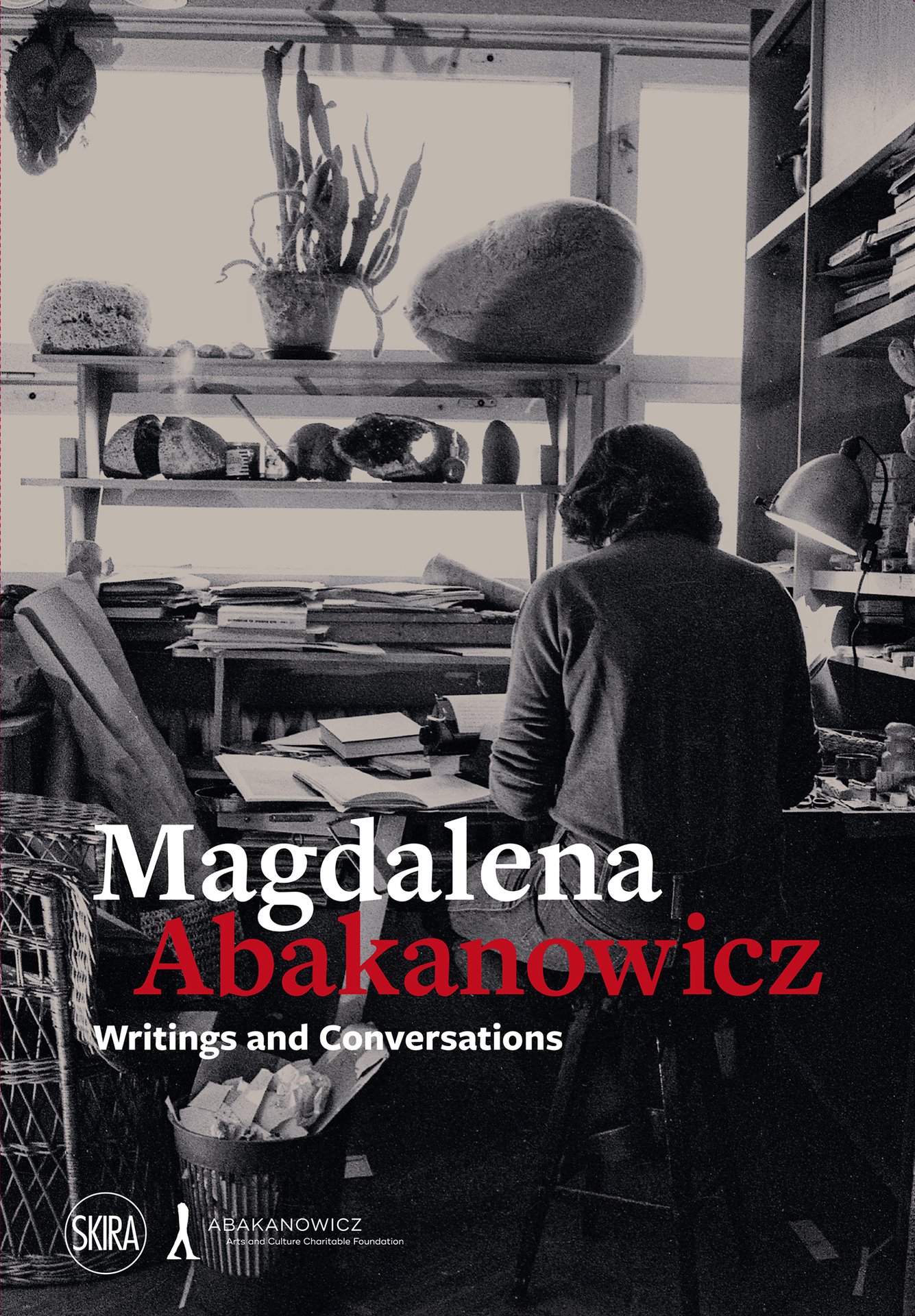Upcoming publication to be announced in conjunction with the symposium New Encounters with Abkanaoiwcz..
Magdalena Abakanowicz: Every Tangle of Thread and Rope
By Ann Coxon & Mary Jane Jacob | 2023
Lavishly illustrated with immersive photography and stunning details, this beautiful exhibition catalogue explores the unique nature of these monumental works and their impact as environmental sculpture. Considering the relationships between the Abakans and their forestlike atmosphere, as well as other key works, it reveals the artist’s broad interest in natural phenomena and folk-art traditions from different cultural backgrounds. Drawing on themes such as shamanism, female energy and power, pregnancy, and insights on human nature, this book highlights Abakanowicz’s pioneering contribution to installation art and the role of collaboration in her practice, while also contextualizing her work within the Polish art world and wider postwar Europe.
Magdalena Abakanowicz: Writings and Conversations
co-edited by Mary Jane Jacob & Jenny Dally | 2022
This first compendium of the artist’s writings throughout her career demonstrates her need to communicate beyond her Warsaw studio with spirited vitality and urgency. It serves as a companion to her profoundly moving autobiography Fate and Art (Skira second edition, 2020), whose first iteration we find here, “Portrait x 20” begun in 1978. Ten interviews span 30 years, including Rose’s never-before-published conversation conducted from the late ’80s to early ’90s. With correspondence among twenty persons formative in her career, this volume will be an essential sourcebook for scholars. By bringing archives to life, this book will prove a fascinating read for others in and out of the art world, able to enter into the soul of an artist so perceptive of her times and so capable of marshaling the power of art to speak of wider human concerns.
Fate and Art: Monologue
by Magdalena Abakanowicz | 2020
The illustrated autobiography of the pioneering Polish sculptor, whose organic installations explored the politics of space in presciently fresh ways. Abakanowicz chose to compose this in English—her non-native language—to write in the most accessible language possible.
Republished with new photography at a moment of considerable renewed focus on the artist, this autobiography narrated her groundbreaking career for the first time.



